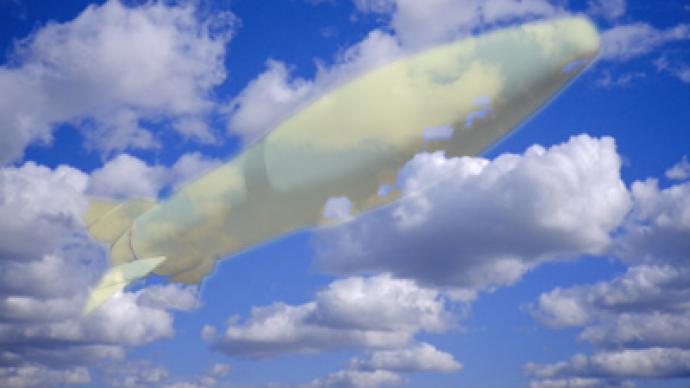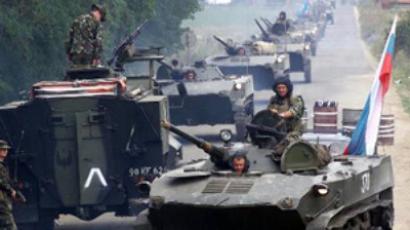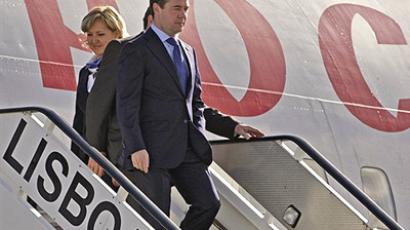Americans discover Russian ghost-missiles on European horizon

Russia’s Chief of the General Staff Nikolay Makarov has dismissed reports in the US media that Russia has deployed missiles in its westernmost exclave, Kaliningrad. What is behind the rumors and is Moscow being portrayed as an enemy again?
Citing unidentified US officials, The Wall Street Journal wrote that Russia – as recently as in spring this year – had moved its short-range tactical nuclear warheads close to the border with NATO states, which has “fueled” US as well as other alliance members’ worries. “The movement of warheads to facilities bordering NATO allies appeared to run counter to pledges made by Moscow starting in 1991 to pull tactical nuclear weapons back from frontier posts and to reduce their numbers,” the paper quoted its sources as saying. General Nikolay Makarov’s comment on the matter was brief but firm. “We have not deployed any missiles in the Kaliningrad Region,” he told journalists.The rumors in the media appeared just ahead of a possible vote in the US Congress on the ratification a new nuclear Russian-American arms-control treaty, known as New START (Strategic Arms Reduction Treaty). The deal was signed by Presidents Dmitry Medvedev and Barack Obama in April this year, following months of bitter negotiations. But that appeared to be just a beginning rather than a happy ending to the story of nuke reduction, as the treaty has yet to be ratified by the two countries’ senates.The new START must get the approval of two-thirds of the US Senate, but the lawmakers are split on the matter, with a number of top Republicans calling to vote against the pact. Their excuses are security concerns and claims that there are more important issues to be discussed in December, during their last session before the new Senate with more Republicans takes to job in January. While Obama has been pushing for the new START to be passed before the end of the year, now the chances of it even being considered during the so-called December “lame-duck session” at the Congress are not quite certain yet.The treaty reduces US and Russian strategic warheads to 1,550 for each country from the current ceiling of 2,200 and allows mutually inspect each other’s nuclear arsenals.“A failure to ratify New START would be a dangerous gamble with America’s national security, setting back our understanding of Russia’s nuclear weapons, as well as our leadership in the world,” Obama said earlier in November.The White House needs just nine more Republican votes to reach 67 to give the treaty the go-ahead. On Tuesday, John McCain of Arizona – the top Republican on the Senate Armed Services Committee – hinted that concerns might still be resolved and the deal will be considered. And here – all of a sudden – come the media reports on Russian missiles in Kaliningrad.“I’m a little disturbed at the news this morning that tactical nuclear weapons have been moved closer to Europe by the Russians,” McCain commented on the matter. “That is not directly related to the START treaty, but certainly is an indication of the need to have verification,” he added. So is the purpose of stirring up such rumors to hamper the START ratification?If the ratification gets put off until 2011, Democrats will need 14 Republican votes because of losses in the mid-term elections in November, which would make the entire business even more complicated. Earlier this month, when meeting with President Medvedev on the sidelines of the APEC summit in Yokohama, Obama referred to the ratification as “top priority” for ratification.On the one hand, making the president lose on one of the major foreign policy issues would, quite logically, be beneficial for his opponents. On the other, conservative republicans probably feel a lot more comfortable with Russia being seen as an enemy rather than a partner. The fact that the report was published by the Wall Street Journal is not surprising either, as the daily is owned by Rupert Murdoch, who is believed to be conservative-leaning.Moscow denies it has moved its missiles closer to NATO borders, and so far no evidence proving the opposite, other than citing some unnamed officials, has been provided. At the same time, in May this year the US deployed its Patriot missiles in Poland, about 60 kilometers from the border with Russian Kaliningrad, for what the American side claimed is a two-year training mission. The Obama Administration dropped predecessor George Bush’s plan to deploy the so-called missile defense shield in the Czech Republic and Poland. The plan was strongly opposed by the Kremlin, which considered the idea a threat to Russia’s national security. However, whatever the official explanation is, American missiles are now close to the Russian border. Moscow has long been pushing for co-operation on missile defense as the world is now facing new common threats and it is time to finally leave the Cold War Era stereotypes. It insists though, that this co-operation should be on a transparent and partnership basis. The Russian side has also urged the creation of new security architecture in Europe that would ensure the safety of the continent. Those calls, however, have so far brought very few concrete results except for talks and promises. "I would like to say openly in this hall that over the next decade we are facing the following alternative: either we reach an agreement on missile defense and create a fully-fledged joint mechanism of co-operation or, if we fail to reach a constructive agreement, a new round of the arms race will start and we shall have to take decisions on the deployment of new strike equipment," Dmitry Medvedev said in his annual address to the parliament on Tuesday. He underlined that that kind of a possible scenario would be a grave one, since that is not what Moscow wants.The question is whether the West can get the message properly or will it again be seen as ‘bad’ Russia calling for a new arms race.
Natalia Makarova, RT














